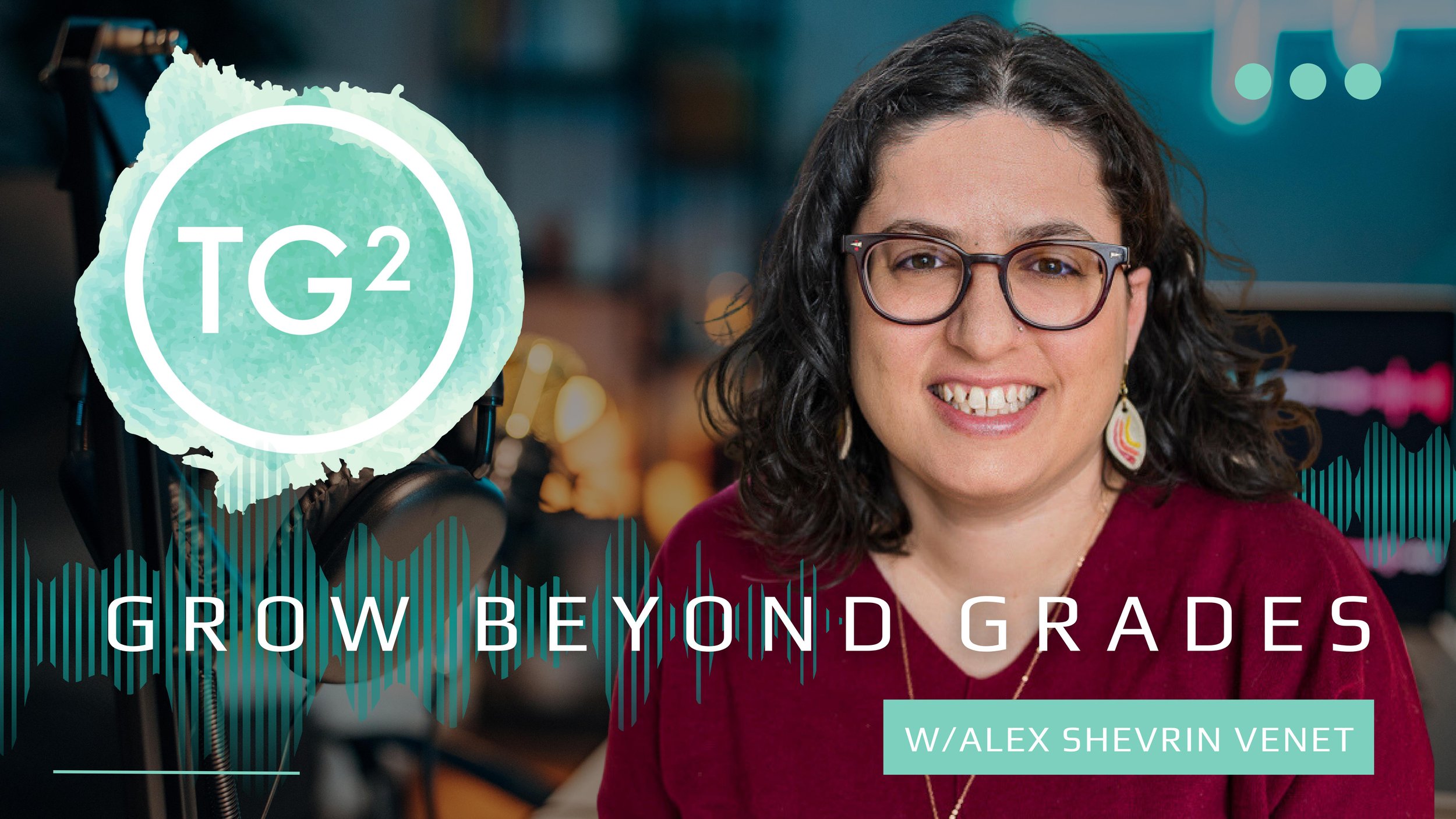Assessing Holistically w/Dr. Carissa McCray
Michelle Cottrell-Williams interviews Dr. Carissa McCray on how teachers can better create equitable, inclusive learning environment that assess learners holistically. Dr. McCray explains why a culturally competent education is important for everyone in our globalized world, and the all-important role assessment plays in reaching all students.
Everything is Assessment
Assessments are a critical component of education, providing educators with important insights into student learning, and supporting the design of individualized instruction and support. And everything is an assessment. Carissa McCray shows how formative assessments can be embedded throughout our lessons to help both the teacher and student track progress towards learning goals.
“Nothing personal, but…”: Technology, Learning, and Assessment
From a distance, personalization seems like a good thing. After all, a building block of good instruction is to know your students. But there is also a darker side. The focus on personalization in educational technology often comes at the expense of the kinds of relationships we know are important for learning. The personal learning espoused by edtech entrepreneurs often leans towards extreme individualization, and a limited view of knowledge and learning. Author Barry Fishman asks, Can we do better?
Leveling up w/Fabiola Torres
Arthur Chiaravalli interviews Fabiola Torres, an online Ethnic Studies professor and Certified Faculty Developer at Glendale Community College. During the pandemic, she's led nationwide workshops and courses on applying equity-minded methods such as culturally responsive teaching in the online environment, humanizing online teaching and learning and ungrading practices.
What Would I Say to a Student’s Face?
Feedback is a key component of learning. Feedback can also evoke emotional responses from students, enhancing or undermining relationality and motivation. Unfortunately, the design and delivery of assessment feedback frequently does not consciously address this socio-emotional dimension. Ameena L. Payne shares how teachers are using video feedback to build trust and humanize the feedback process.
Beyond the Numbers: Exploring the Gradeless Classroom Experience
The traditional grading system presents numerous drawbacks and limitations, a reality that became particularly evident to Rachael Kettner-Thompson as she took on teaching high school credit recovery in Chemistry over the summer. Hearing from students who held negative self-perceptions or viewed themselves as inadequate was a stark reminder that traditional grading methods can inadvertently hinder students and take away from the fundamental purpose of school—to facilitate learning and growth.
Undoing the Grade w/Jesse Stommel
Vanessa Ellis interviews Jesse Stommel, author of Undoing the Grade: Why We Grade, and How to Stop. Originally aired as part of a special Community Gathering, the interview explores Jesse’s experiences as an ungrading teacher and how his stance is informed by larger questions of equity, care, and the humanity of both teachers and learners.
Does Going Gradeless Work?
For Rhonda Higgins, going gradeless has been a journey. From learning about the impact of a zero on a 100-point scale to implementing student-led grading conferences, Rhonda now shares with others how they can reclaim their time by giving students more accountability of their learning. “Teachers should not own 100% of the assessment process,” she writes. “By grading less, students share in the responsibility.”
The Mastery Transcript w/Mike Flanagan
Lisa Wennerth interviews Mike Flanagan, CEO of the Mastery Transcript Consortium (MTC), a growing group of high schools creating a digital high school transcript that opens up opportunity for each and every student—from all backgrounds, locations, and types of schools—to have their unique strengths, abilities, interests, and histories fostered, understood, and celebrated.
Using a Graphic Syllabus (And Why I Think It Works)
For Middlebury College professor, Greg Pask, a graphic syllabus is a chance to establish the tone he wants for a course. Instead of treating the syllabus as a list of rules, penalties, and a code of conduct, the graphic syllabus communicates a “welcome to learning” invitation. And although a graphic syllabus and ungrading are not corequisites, the “ welcoming vibe of the graphic syllabi pairs well with my gradeless approach.”
Equity-Centered Trauma-Informed Education w/Alex Shevrin Venet
Lisa Wennerth interviews Alex Shevrin Venet, author Equity-Centered Trauma-Informed Education. Venet explains how schools can become more truly trauma-informed when they center equity and employ “proactive priorities” in planning and decision making. A long time ungrader, Alex examines how the same principles can be used to make ungrading more inclusive and equitable.
Communication: The Key to Success
Regardless of whether we care about grades, they are still an obstacle we must address. Going gradeless requires that teachers be especially proactive and open in their communication. In addition to adopting instruction and assessment practices that are accessible and equitable, it is equally important we convey these approaches so they are easily understood by all interested parties.












